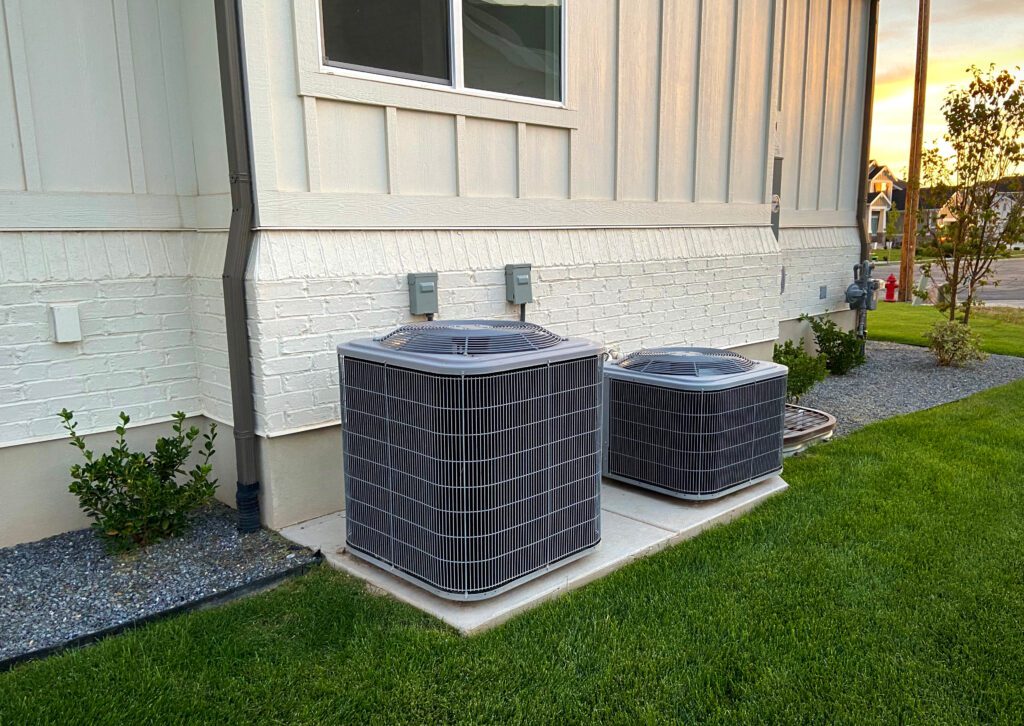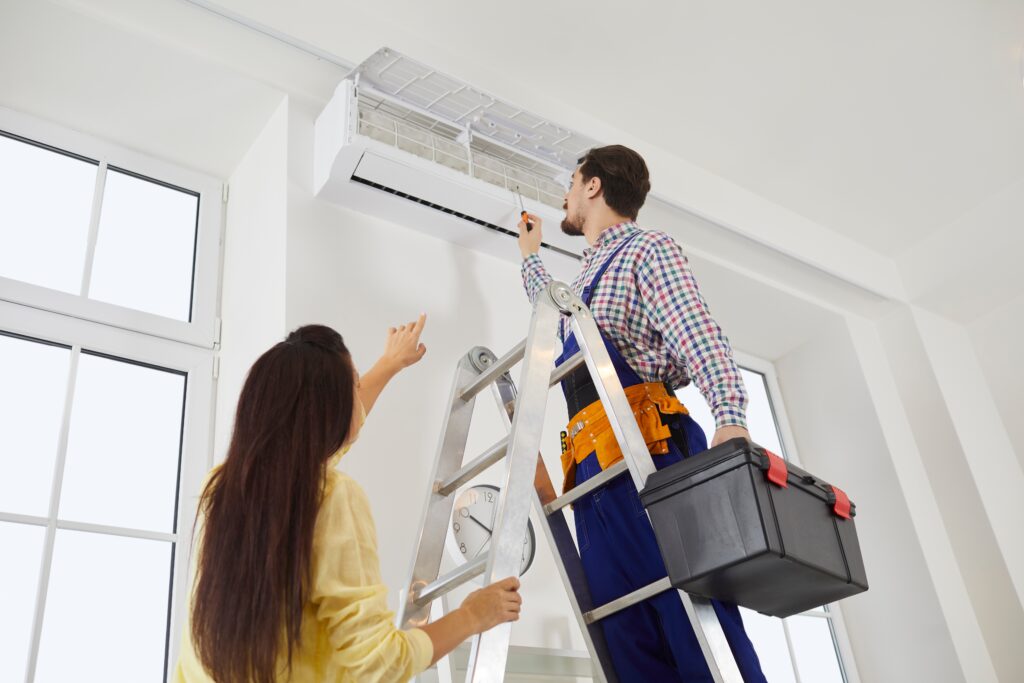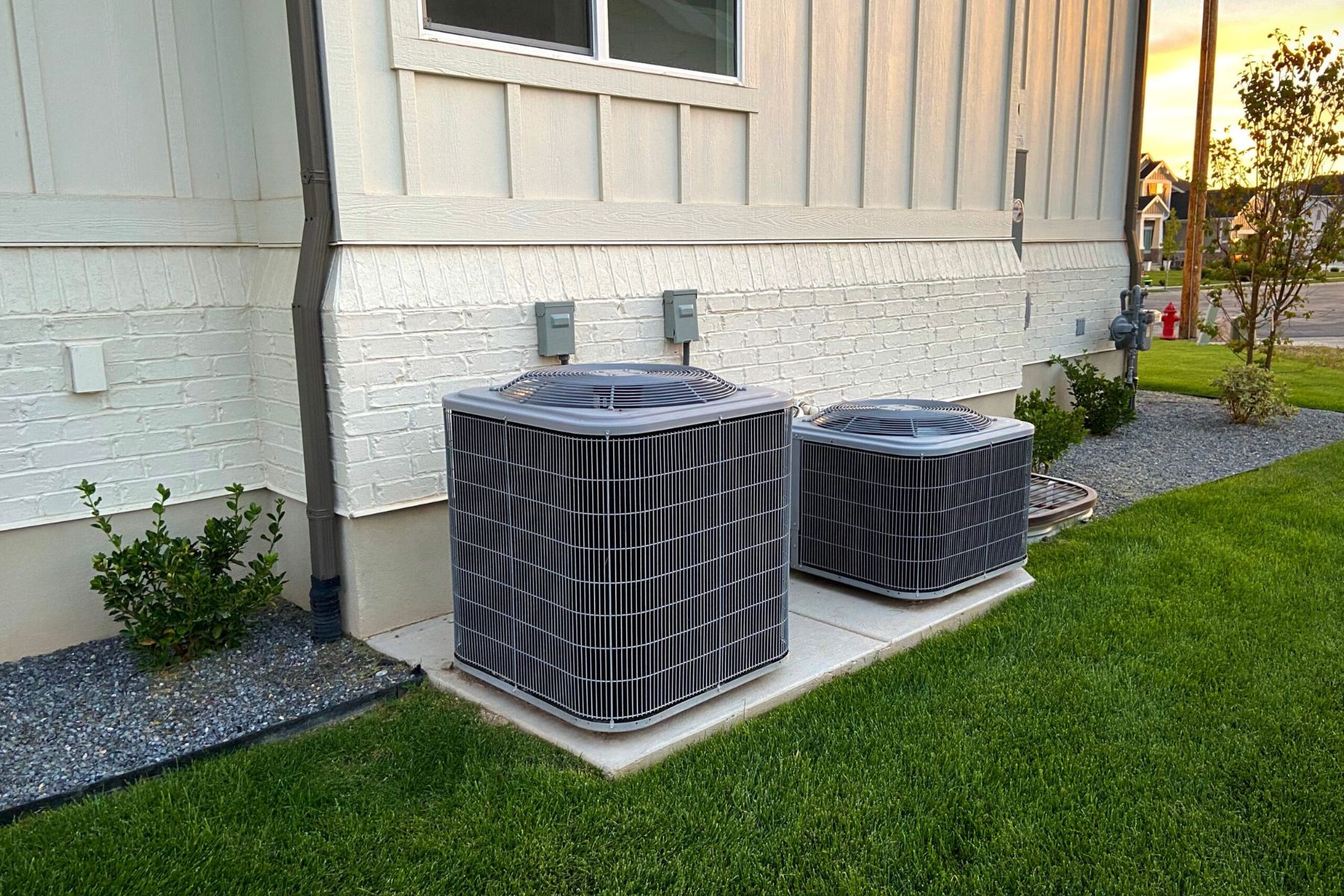As a homeowner, few things are more unsettling than hearing your air conditioning system make an unfamiliar sound. An A/C making weird noise can be a sign of various issues, ranging from minor inconveniences to major problems requiring immediate attention. In this blog, we’ll explore the most common reasons behind these strange noises and what they might mean for your A/C system.

Keep your ears open: unusual A/C noises can signal issues needing prompt attention.
Understanding A/C Noises
Before we dive into the specific reasons for weird A/C noises, it’s important to understand that your air conditioning system is a complex machine with many moving parts. Some level of noise during operation is normal, but sudden or unusual sounds often indicate that something isn’t quite right.
#1. Buzzing or Humming
If you hear a buzzing or humming sound coming from your A/C, it could be due to several factors:
- Loose parts: Vibrations from loose components can create a buzzing noise.
- Electrical issues: Faulty wiring or a failing capacitor might cause a humming sound.
- Outdoor fan motor: A malfunctioning fan motor might produce a loud humming.
#2. Rattling or Clanking
Rattling or clanking noises often suggest that something has come loose within the system:
- Loose screws or bolts: These can cause parts to rattle against each other.
- Unbalanced fan blades: If fan blades become bent or unbalanced, they may hit other components.
- Damaged compressor: Internal parts breaking loose in the compressor can cause a clanking noise.
#3. Whistling or Screaming
High-pitched whistling or screaming sounds are often cause for immediate concern:
- Refrigerant leak: A major leak can create a high-pitched whistle.
- Compressor pressure: Excessive pressure in the compressor might cause a screaming noise.
- Faulty compressor: A failing compressor can produce a screeching sound.
#4. Clicking
Clicking noises can have various causes:
- Normal operation: Some clicking during startup and shutdown is normal.
- Electrical issues: Repeated clicking might indicate a failing thermostat or control board.
- Obstruction in fan: Something caught in the fan blades can cause a repetitive clicking.
#5. Banging or Thumping
Loud banging or thumping noises are usually a sign of a serious problem:
- Loose or broken internal part: A component may have come loose or broken inside the unit.
- Compressor issue: The compressor might be loose or failing.
- Unbalanced blower: An unbalanced blower wheel can cause thumping.
#6. Squealing or Squeaking
High-pitched squealing or squeaking noises often relate to belt or bearing issues:
- Belt problems: In older units with belt-driven fans, a worn or slipping belt can squeal.
- Faulty bearings: Worn bearings in the fan motor can produce a squeaking noise.
- Blower wheel issues: A loose blower wheel or shaft can cause squealing.
#7. Gurgling or Bubbling
Gurgling or bubbling sounds might seem less concerning, but they can indicate:
- Refrigerant leak: Escaping refrigerant can create a bubbling sound.
- Drainage issues: Clogged condensate lines can cause water to back up and gurgle.
#8. Pulsating or Throbbing
A pulsating or throbbing noise might be caused by:
- Loose panels: Exterior panels that aren’t securely fastened can vibrate.
- Fan issues: An unbalanced or obstructed fan can create a pulsating sound.
#9. Hissing
Hissing noises often indicate:
- Refrigerant leak: A small leak can produce a hissing sound.
- Air leak: Ductwork leaks can also create a hissing noise.
- Expansion valve issues: A faulty expansion valve might hiss as refrigerant passes through.
#10. Popping or Cracking
Popping or cracking sounds, especially when the system starts or stops, might be due to:
- Ductwork expansion: Temperature changes can cause ductwork to expand or contract.
- Ice formation: In some cases, ice forming on the evaporator coil can crack as it melts.
Preventing A/C Noises
While some A/C noises are unavoidable, you can take steps to minimize the risk of weird noises and maintain your system’s health:
- Regular maintenance: Schedule annual professional maintenance to catch and address potential issues before they become noisy problems.
- Change filters: Regularly replacing air filters ensures proper airflow and reduces strain on your system.
- Keep the area clear: Ensure the area around your outdoor unit is free from debris and vegetation that could interfere with its operation.
- Listen for changes: Familiarize yourself with your A/C’s normal operating sounds so you can quickly identify when something changes.
- Prompt repairs: Address any unusual noises or performance issues promptly to prevent them from escalating into more serious problems.
When to Call a Professional

Strange A/C noises you can’t pinpoint? It’s time to bring in the experts.
While some minor A/C issues can be addressed by homeowners, many problems require professional expertise. You should call an HVAC technician if:
- You can’t identify the source of the noise
- The noise is accompanied by poor cooling performance
- You suspect electrical or refrigerant issues
- The noise is loud, persistent, or concerning
Remember, attempting to repair complex A/C issues without proper knowledge and tools can lead to further damage or even personal injury.
We Can Help
An A/C making weird noise can be more than just an annoyance–it’s often a sign that your system needs attention. Remember, addressing A/C noises promptly not only restores your peace of mind but can also prevent minor issues from becoming major, costly repairs. At Valiant Energy Solutions, we understand the importance of a well-functioning air conditioning system for your comfort and peace of mind.
Don’t let strange A/C noises disrupt your home’s comfort. Contact Valiant Energy Solutions today for a thorough inspection of your HVAC system.



